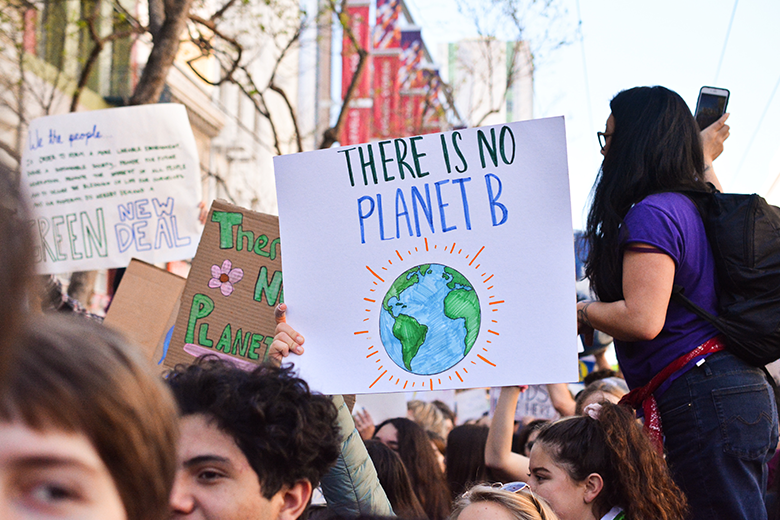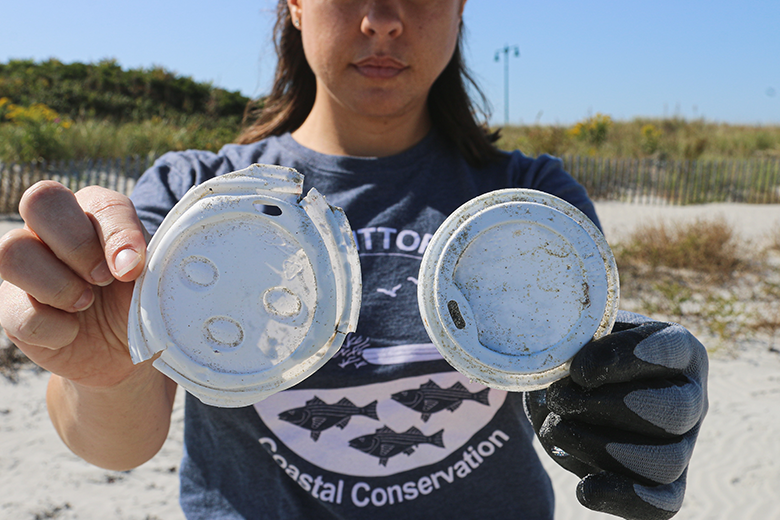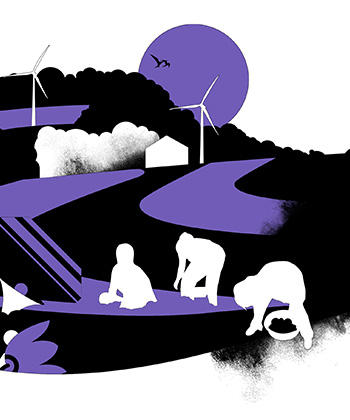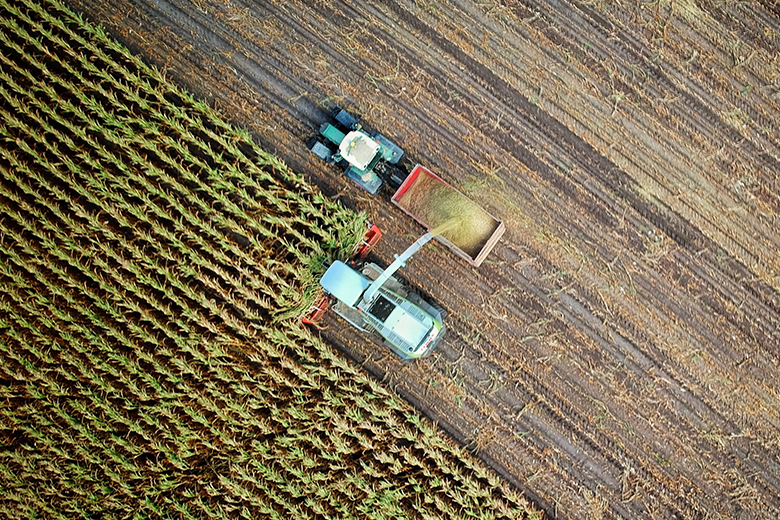A SUSTAINABLE FUTURE
Existing in BalanceJoy Green
Regeneration: For ourselves and for the planet.Nobody can predict the future, but there is immense value in carefully studying, assessing and anticipating an array of potential outcomes. The charity and non-profit organisation Forum for the Future has a global network of over 130 organisations and collaborates with governments, civil society and the private sector with the aim of accelerating a shift toward a sustainable future. Joy Green is a Futurist and Strategic Advisor at Forum for the Future, she explains to Nick Rice that a fundamental transformation of our core systems, such as energy and food, is crucial to vouchsafe a sustainable future.
Forum for the Future says that, “To create a sustainable future, it’s critical to reimagine and transform the key systems we all use and rely on, and innovate for long-term success.” What are some of the initial steps towards making that change?
There are several areas where change is needed, but perhaps the most important initial step is to do with changing our mind-sets. The problems we face around climate change, biodiversity, health, inequality etc. are all deeply interconnected and cannot be properly tackled as separate issues. We need to learn to think and act systemically. When we do this, we realise that just tweaking current methods to make them ‘less bad’ is nowhere near enough, and a new approach is needed, usually a regenerative one. For example, current mainstream farming methods are high emission and destroy the biosphere – from the forest that is cleared to the very soil itself, and current diets are bad for health. If you consider these problems separately, you come up with ‘solutions’ such as making farming more efficient, which just entail a bit less destruction, but don’t change the direction of travel. But when considered together, a deeper approach emerges – regenerative agriculture – which isn’t just ‘less bad’ but actually attempts to rebuild the soil and sequester carbon via farming, and to restore biodiversity while producing healthy food. This then also naturally opens up the question – what is a regenerative diet, and what should we eat to support our health and the planet’s health?
What are some of the more complex actions that need to be taken further down the line?
The complexity comes from trying to shift from our current extractive and wasteful approach, to a regenerative approach, in a pretty short space of time, in almost every area of life! The good news is that there are so many pilots of this approach everywhere – experiments with sanity, you might call them – but the difficulty comes with scaling up in time, without disrupting too badly the systems we depend on. And with regards to climate change, there are a multitude of actions that need to happen right now, at every level.
“If the people with the 10 per cent highest emissions reduced them to those of an average European, global emissions would drop by 30 per cent.”

Some reports state that in a decade, we could go past the point of no return, making climate breakdown inevitable. Can systemic change be made reality in time?
That is the key question that no-one knows the answer to, but we have to pursue systemic change even if we do cross the thresholds. Even within climate breakdown there are different levels of severity and we have to do everything we can to slow it down.

Who and what are the prime culprits who have brought us to this desperately critical situation?
That is a deceptively simple question with many possible answers. From a systemic perspective two things stand out. The first is that a lot of changes could have happened much sooner – we have known about these problems since the 1970s – but were delayed or blocked by vested interests, such as the fossil fuel companies. The second is that the lifestyles of the richest 10 per cent are a main contributor to the situation. There is an astonishing statistic that illuminates this – if the people with the 10 per cent highest emissions reduced them to those of an average European, global emissions would drop by 30 per cent.
You work with complex systems, emergent behaviour, unintended consequences and more… how confident are you that your predictions will come to be?
We don’t ever make predictions at Forum as the future is inherently unpredictable; instead we think in terms of possibilities and multiple futures. There are still many possible futures, some are pretty dark but there still remain a few positive trajectories. A lot will hinge on what happens in the 2020s, which look set to be turbulent.

Is there any crossover or collaboration between Forum for the Future and the luxury sector?
We do work with some actors in the luxury sector, because they have the margins to trial regenerative approaches, and they also influence what is seen as desirable and aspirational.
Across many industries, including fashion, we are seeing resourceful uses of plastic – for example, garments made of plastics taken from the ocean etc. Can you see us turning a corner with pervasive plastic pollution and getting it under control? If so, what gives you that hope?
We are some way from turning the corner on plastic because it is so deeply ingrained in modern life, but what does give me hope is the rise of the plastic-free movement and some signs of the beginning of a shift away from disposable culture and single-use plastics. This is particularly marked in the younger generations (i.e. people born since the early 1980s) – and they will become more dominant globally from 2025, so hopefully a generational shift will speed the process. The current public failure of plastic recycling might actually also help, counter-intuitively, by making clear the depth of change that has to happen.
Have you noticed a change of evolution in the concept of luxury? For example, the move towards the experiential economy; luxury consumed and expressed in experiences rather than products.
There definitely seems to be a shift towards accumulating experiences in general, due to social media, but a lot of the high-end experiences are still pretty intensive and leave a big footprint. I’m actually more interested in the regenerative approach to luxury, where the impact and narrative are about products or experiences that are truly restorative.

“Extractive, wasteful and exploitative approaches can’t be made sustainable but have to be rethought.”

Considering how influential the luxury sector is, do you believe it is incumbent upon the industry to better integrate sustainability into core business strategy, products, and operations to help drive environmental and social progress?
Absolutely, the industry has the margins to do this and it also fits with traditional luxury values of high quality, artisanship and refinement etc.

Can sustainability and luxury go hand in hand?
This is a deeper question. Some approaches to luxury can do this, others cannot. Extractive, wasteful and exploitative approaches can’t be made sustainable but have to be rethought.
“Ask deeper questions about what it means to live beautifully, shift the dial away from consumption.”
How can luxury companies use their core business strategies to contribute a positive impact?
Luxury companies can have impact in two main ways. First is their actual operations and supply chains, can they make these zero carbon, zero waste, net regenerative, and can they also properly support workers and artisans throughout the production processes.
Second is the narrative they create about what is desirable and aspirational – can they shift this narrative towards regeneration, ask deeper questions about what it means to live beautifully, shift the dial away from consumption.

What do you think about a standardized supply chain measurement tool so garment tags can inform shoppers about their purchases’ social and environmental effects?
It sounds a useful part of a wider system shift but on its own it doesn’t sound like it would be enough. It’s not enough to expect consumer choices to drive everything, companies have to take the initiative. Imagine if every time you bought a toaster you had to choose between 200 varieties, some of which might blow up, or melt down the electrics in your house. There is a basic expectation that all toasters on sale are safe. Similarly, we should be able to have a basic expectation that all clothes on sale are ‘planet safe’ and not contributing to the wrecking of the life support systems we depend on or causing social problems.
Finally, it’s not all about what the luxury companies do, but also what we as consumers do too. Are you hopeful that how business is done will change, or is this insane metric of success that is perpetual growth going to be the end of us?
One way or another, business will have to change. The question is, will they choose it while they still can, or have it forced upon them by events. By 2030, business will either be moving to regenerative methods at scale, or dealing with the fall-out, as ‘Business as Usual’ methods come apart at the seams.

